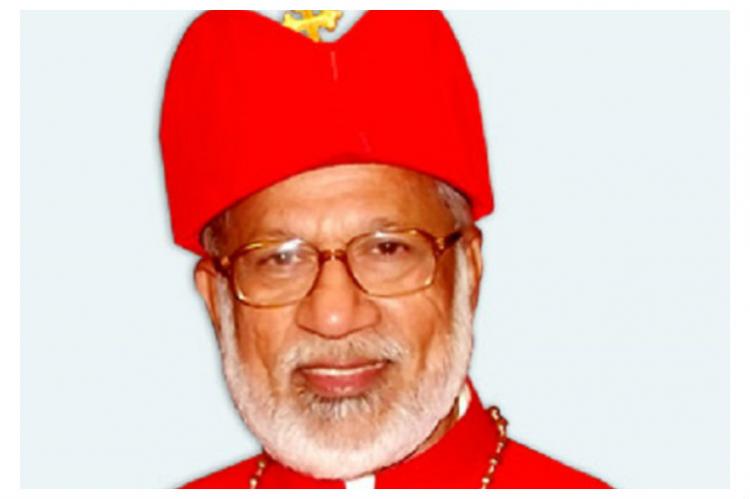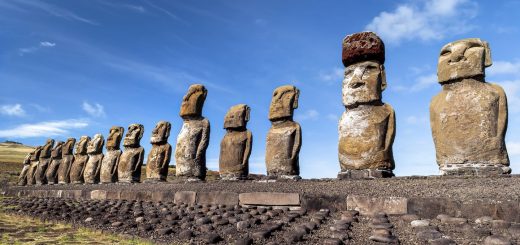CARDINAL SIN & CAPITAL LOSS

Cover Image: Cardinal George Alencherry at the eye of the storm

* chhotebhai
This is about a cardinal, and his alleged capital sins. It is not about Cardinal Jaime Sin, the 30th archbishop of Manila (31/8/1928 – 21/6/2005) of Chinese Filipino descent, who courageously fought against the Filipino dictators of his time. This is about Cardinal George Alencherry, the archbishop of the Syro-Malabar archdiocese of Ernakulam-Angamaly in Kerala.
Though the Syro-Malabar Church rightly traces its roots to apostolic times, Ernakulam was made a diocese only in 1896, and Mar Augustine Kandathil was appointed as its first archbishop in 1923. Since then the others who have headed the archdiocese have all been cardinals – Joseph Parecattil, Antony Padiyara and Varkey Vithayathil. Ernakulam then is probably the numero uno diocese of India. According to the Catholic Directory of India 2013 it ministers to over 6 lakh Catholics, through 335 parishes with about 400 active clergymen. If about 200 clergymen organized an open protest march against the incumbent archbishop/ cardinal it is 50% of the active strength of the clergy. Had it been a democratically elected body it would have amounted to a no-confidence motion, necessitating immediate resignation.
What is all the hullabaloo about? The matter is already in the public domain, both in the secular and Christian media (despite one church official desperately trying to prevent the story from breaking in a leading Catholic weekly). Several “pious” Catholics will tell us not to wash dirty linen in public. This linen originally referred to menstrual linen being discreetly kept out of public view. After Padman and the “Stain is no shame” campaign, the women themselves are taking the stigma out of the closet (pun intended). Hence the argument about not washing dirty linen in public holds no water (another pun)! Our pious Catholics will again tell us that we must forgive seventy times seven. This is not an absolute criterion. Else crime would go unchecked.
For those who would like to throw the book at the whistleblowers they need to heed what Jesus says. “If your brother does something wrong go and have it out with him alone, between your two selves. If he listens to you, you have won back your brother. If he does not listen, take one or two others along with you: whatever the misdemeanour, the evidence of two or three witnesses is required to sustain the charge. But if he refuses to listen to these, report him to the community; and if he refuses to listen to his community, treat him like a Gentile or a tax collector” (Mat 18:15-17). Jesus, who himself was familiar with Scripture, was actually quoting from the Book of Deuteronomy. “A single witness will not suffice to convict anyone of a crime or offence of any kind; whatever the misdemeanour, the evidence of two witnesses or three is required to sustain the charge” (Deut 19:15).
Christians, besides being pious, are also called upon to be prophetic, both as whistleblowers and watchmen (“chowkidar” is in vogue now). It is a duty encumbent on us. This is what God says to the Prophet Ezekiel, “Son of man I have appointed you as a watchman for the house of Israel. When you hear a word from my mouth, warn them from me. If I say to someone wicked, Evildoer you are to die, and you do not speak to warn the wicked person to renounce such ways, the wicked person will die for his guilt, but I shall hold you responsible for the death. If, however, you do warn someone wicked to renounce such ways and repent, and that person does not repent, then the culprit will die for his guilt, but you yourself will have saved your life” (Ez 33:76-9).
When it comes to persons holding high office, the culpability/ accountability increases. Speaking of stewardship Jesus says, “When someone is given a great deal, a great deal will be demanded of that person; when someone is entrusted with a great deal, of that person even more will be expected” (Lk 12:48). So, far from being passive spectators Jesus expects us to fulfil our prophetic office and hold those holding high office to account. That includes cardinals and their sins of omission or commission.
As per media reports and persons in the know of the case in Kerala, this pertains to the sale of no less than 36 properties of the archdiocese by the cardinal, assisted by two priests, Joshy Puthuva and Sebastian Vadakkumpadam, and a broker Saju Varghese Kunnel. It is alleged that these properties were sold cheaply, causing a pecuniary loss to the archdiocese, and thereby its people (tax payers’ money). The immediate cause of action was because of a loan taken to build a medical college. The properties had to be sold to pay off that loan and interest accrued thereon.
The Syro-Malabar Christians are probably the richest in the country. The church is always collecting donations, and “passing around the envelope”. Who wanted a medical college – the people or the cardinal? If it was indeed the people’s desire, surely they would have raised the funds for it. The Catholic Church in India is believed to be flush with funds, and constantly buying up more and more properties. It is therefore hard to believe that in Kerala, of all places, the Catholic Church has become so impoverished that it had to indulge in the distress sale of its immoveable properties to pay off a loan. Who approved of taking a loan in the first place? Why should the community suffer for the financial mismanagement (I won’t call it misappropriation just yet) of its stewards?
Besides the morality, or otherwise, of these acts, let us also study the legalities. The cardinal has taken the plea that he is answerable only to the Pope, and that the matter of church properties is governed by Canon Law, and not the country’s civil laws. A whistleblower watchman Shine Varghese of Charthala made a police complaint that was not entertained. He then filed an application in the Kerala High Court asking for a First Information Report (FIR) to be filed. Justice B Kemal Pasha, after hearing both sides, rejected the cardinal’s contention that the diocesan property was a private property, hence a third party like the complainant had no locus standii in the case. The judge held that the cardinal was not the owner, but a caretaker (steward in biblical parlance). An FIR has now been registered under sections 420 (cheating), 120B (criminal conspiracy) and 406 (breach of trust) of the Indian Penal Code (IPC).
The cardinal’s contention that he was governed by Canon Law and therefore the laws of the land did not apply to him is absurd. How different is he from Hindu or Muslim fundamentalists that claim that their personal laws are supreme and cannot be encroached upon by the State? Any criminal act, be it cheating, fraud or heinous crimes like murder and rape are covered by the IPC, notwithstanding anything written in any religious scripture or personal law.
It is reported that a similar case arose in Kerala in 2012, pertaining to the property rights of Mukkad Thirukudumba Church, Sakthikulangara, Kollam. In that dispute Justice K.V. Chandra had ruled that parishioners, independently or collectively, were competent to represent the parish and claim rights over the property of the church. It held that even “Canon Law, as it exists now, realises the fences (sic) erected by civil law and cautiously veers away from any transgression thereof”. The judge was quoting from a full bench decision of the High Court that was later upheld by the Supreme Court. So obviously the cardinal is skating on thin ice when he seeks to use the fig leaf of Canon Law to cover his alleged “sin”.
What does Canon Law itself say? The Code of Canons of the Eastern Churches was promulgated by Pope John Paul II on 18/10/1990, seven years after the Code that applies to what is euphemistically called “Latin” churches. Provisions for a Finance Officer and Finance Council are in Nos 262 -263. Title XXIII is “The Temporal Goods of the Church”, covered by Canons No 1007-1054. Reparation for damages is covered by Nos 1483-85. Let us scan some of them.
The bishop “is to appoint an experienced finance officer who is a member of the Christian faithful expert in economic matters and distinguished for honesty” (No 262:1). The bishop is to form a finance council with experts in civil law (No 263:1). Relatives of the bishop, up to the fourth degree of consanguinity or affinity are barred from being members of the Finance Council (No 263:3). In grave economic matters the bishop must listen to the Finance Council (No 263:4).
The chapter on Temporal Goods has this to say. “All temporal goods which belong to juridic persons are ecclesiastical goods” (No 1009:2). Such goods should have “due regard to the prescriptions of civil law which safeguard the rights of the church” (No 1020:1). Administrators “must especially be on guard lest the church be harmed through the non-observance of civil laws” (No 1028:2).
Besides respect for civil law, there are also safeguards against alienation (sale) of church property. A sale should be only if there is an urgent necessity and evident advantage (No 1035:1), and there should be safeguards to prevent any loss to the church (No 1035:2). “The consent of all interested parties is required for any kind of alienation” (No 1039). “Ecclesiastical goods are not to be sold or leased out to their own administrators or to their relatives” (No 1041).
From the above it is abundantly clear that the cardinal is not a sole proprietor. He is only a steward of ecclesiastical goods (community assets), and he cannot deal with them in an arbitrary manner, with scant regard for the provisions of civil law. There have been similar instances of the Catholic laity challenging the hegemony of the clergy over money in Mumbai, Ranchi and Ahmedabad dioceses, of which I have personal knowledge. But I will leave that for now.
When we “studied” catechism several moons ago we were told about the seven Capital Sins – gluttony, lust, covetousness, anger, envy, pride and sloth. In the instant case it seems to be the Capital Sin of Pride that has caused the Capital Loss. It makes one blind to the feelings/ aspirations of others.
I would not like to prejudge the cardinal or his alleged “sin”. But if a High Court judge has found enough prima facie evidence against him to order a criminal investigation, and half the priests of the diocese have come out in open protest, then it is in the interests of justice that the cardinal step down till the probe is over. He can stoop to conquer, lest he be thrown off his high horse by the law of the land and live a nightmarish existence thereafter. Humility is one of the fruits of the Holy Spirit. May it envelope the cardinal. There is still time for exoneration or reparation, as the courts and investigations will decide.
* The writer is a former National President of the All India Catholic Union, and conversant with the state of the church across the country.

















Sorry for the slip of bet for best.
It's a very well researched and convincing article, written without prejudices in the bet interest of the Universal Church. Cardinal Allencherry has been in the news for a pretty long time for all the wrong reasons. His wrong doings have been denounced in vehement.terms. This is the first time I am reading the same content with solid scriptural backing. My prayer is that all the bosses posing to be leaders of the church or its enemies follow the path of truth and humility as manifested by Chhotebhai.
An indepth treatise by Chhotebhai, former President of All India Catholic Union. It has been written in the light of Canon Law and Biblical documents and is a wake-up call to the Church Hierarchy which considers itself above the law of the land, under the guise of Canon Law.
His last paragraph is loaded and an invitation to the Church authorities to read the writing on the wall:
"But if a High Court judge has found enough prima facie evidence against him to order a criminal investigation, and half the priests of the diocese have come out in open protest, then it is in the interests of justice that the cardinal step down till the probe is over. He can stoop to conquer, lest he be thrown off his high horse by the law of the land and live a nightmarish existence thereafter. Humility is one of the fruits of the Holy Spirit."